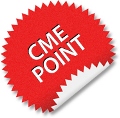
Shavonne Massey
Children Hospital of Philadelphia, USA
Title: Considerations in the diagnosis and treatment of neonatal seizures
Biography
Biography: Shavonne Massey
Abstract
Over 800,000 neonates suffer brain injury yearly and seizures are the most common clinical manifestation. Seizures are common during the neonatal period due to age-dependent mechanisms that favor excitability in the immature brain. There are a myriad of potential causes for neonatal seizures, but acute causes, such as hypoxic ischemic encephalopathy, stroke, hemorrhage, and infection, are most common, accounting for up to 80% of cases. The recognition of neonatal seizures is important because seizures are associated with unfavorable acute and chronic outcomes. In the past, seizures were diagnosed clinically, but with growing recognition of the very high subclinical seizure burden that exists in the neonatal population, the electroencephalogram (EEG) is now the gold standard for diagnosing and managing neonates at high risk for seizure occurrence. With the use of EEG, more neonates with seizures are identified bringing considerations in the management of neonatal seizures to the forefront of neonatal care. While there is a growing body of literature on the occurrence and diagnosis of neonatal seizures, many questions remain about the best ways to manage neonatal seizures. Developing best practices for the management of neonatal seizures is of paramount importance given that the mere presence of neonatal seizures can worsen the neurodevelopmental trajectory. This session will review the epidemiology and etiologies of neonatal seizures, as well as the diagnosis of neonatal seizures and the important role of the EEG in accurately diagnosing seizures. The session will also review outcomes data from basic and clinical models of neonatal seizures. The majority of the session will focus on specific considerations in the treatment of neonatal seizures, including when to treat seizures, the mechanisms and data supporting the use of specific antiseizure medications, novel antiseizure medications currently under investigation, and the presence and effect of variability in the treatment of neonatal seizures.

